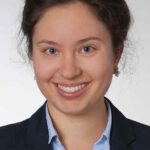The Women in Data Science (WiDS) project aims to inspire and support women pursuing careers in data science while providing a global network for professional development. WiDS seeks to bridge the gender gap by promoting equal opportunities, providing mentorship, and fostering a sense of community among women in the field. The conferences organized under the WiDS umbrella serve as a catalyst for these objectives, bringing together influential speakers and aspiring data scientists. The project was started 2015 at Stanford University and has since spread around the world with over 100 events happening yearly.
WiDS Zurich 2023
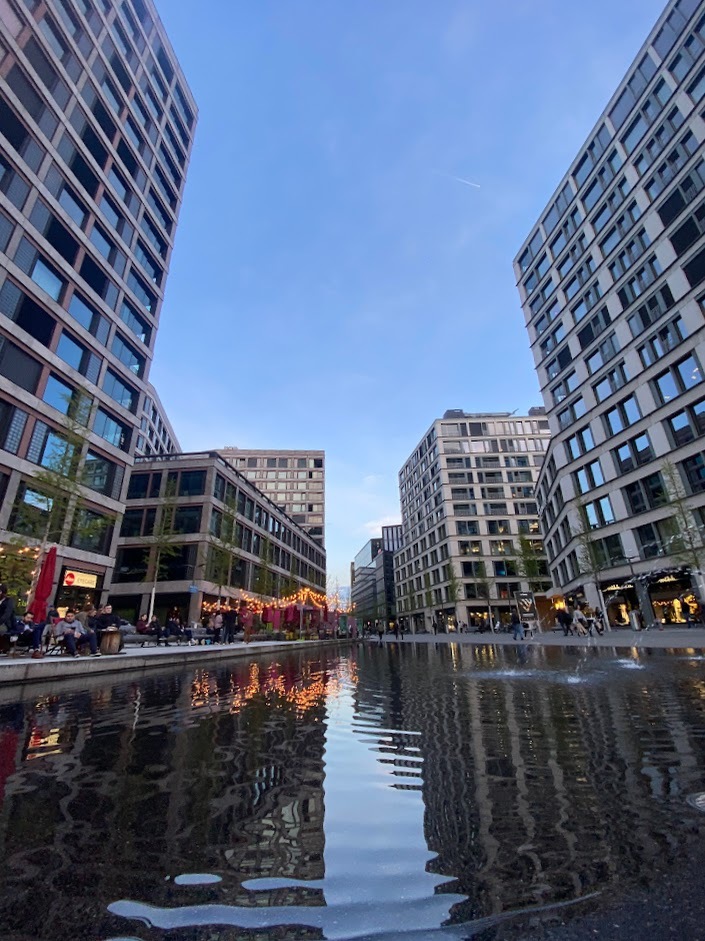

The WiDS took place in Zurich for the fifth time. It was my second time to be there – and may I say, it’s becoming one of my favourite days of the year. The organization and the event location in the Center for a Global Dialogue in Rüschlikon, a green suburb of Zurich, with fantastic nature views left nothing to be desired. Neither did the amazing panel of keynote and lightning speakers. Some of them I would like to describe here in a couple of sentences:
1. Hulya Emir-Farinas, former Director of Data Science at Fitbit, and now a senior research scientist at Google, started the day with her lecture on user data analysis for user behaviour change. It is widely known that in the Western world physical inactivity, poor diet and sleep deficiency are being held responsible for a lot of health problems. According to WHO, physical inactivity alone costs 27 billion dollars annually worldwide. Smart devices can help people change their habits and dispose of these risk factors by introducing new behaviour patterns – and Google Research Center is currently working on ways to do it.
2. Kirstine Dale from the Joint Centre for Excellence in Environmental Intelligence was talking about examples of applications of data science in the relatively new field of environmental intelligence. The projects of the Center are tightly bound to UN’s Sustainability Goals and engage with such topics as applying remote sensing and climate data in agriculture to predict future threats. The project CLIMAR – CLimate change IMpacts, Adaptation, and Resilience – integrates multiple sources of data to quantify the risks of climate change on populations, infrastructure and the economy.
3. Malvina Nissim, Computational Linguistics professor at the University of Groningen, asked: „Is language technology for everyone?“. This lecture contained multiple examples of gender biases, found during the use of Google Translate, AI-generated art, ChatGPT, etc. But the key point of this lecture was, that although all current natural language tools make mistakes, they don’t deserve the outrage they often get from publicity. The models are based on the data mined from the web. Thereby web biases are used for training the models, as well as developers introduce their stereotypes to the systems they are working on. In the end she left the audience to think about the relevancy of censorship in ChatGPT. The example she brought was if you ask ChatGPT to make a joke about women, the AI wouldn’t respond, stating that it’s indecent. However, it would deliver a joke if it’s asked to make one about men.
The first session traditionally ends with a poster session, where pre-selected posters are presented in 2 min talks by their authors. This year I applied with the poster, summing up my master’s thesis research, and was honoured to be selected to present it. It felt great to also have a spotlight on the stage, standing next to the poster and having very inspiring discussions.
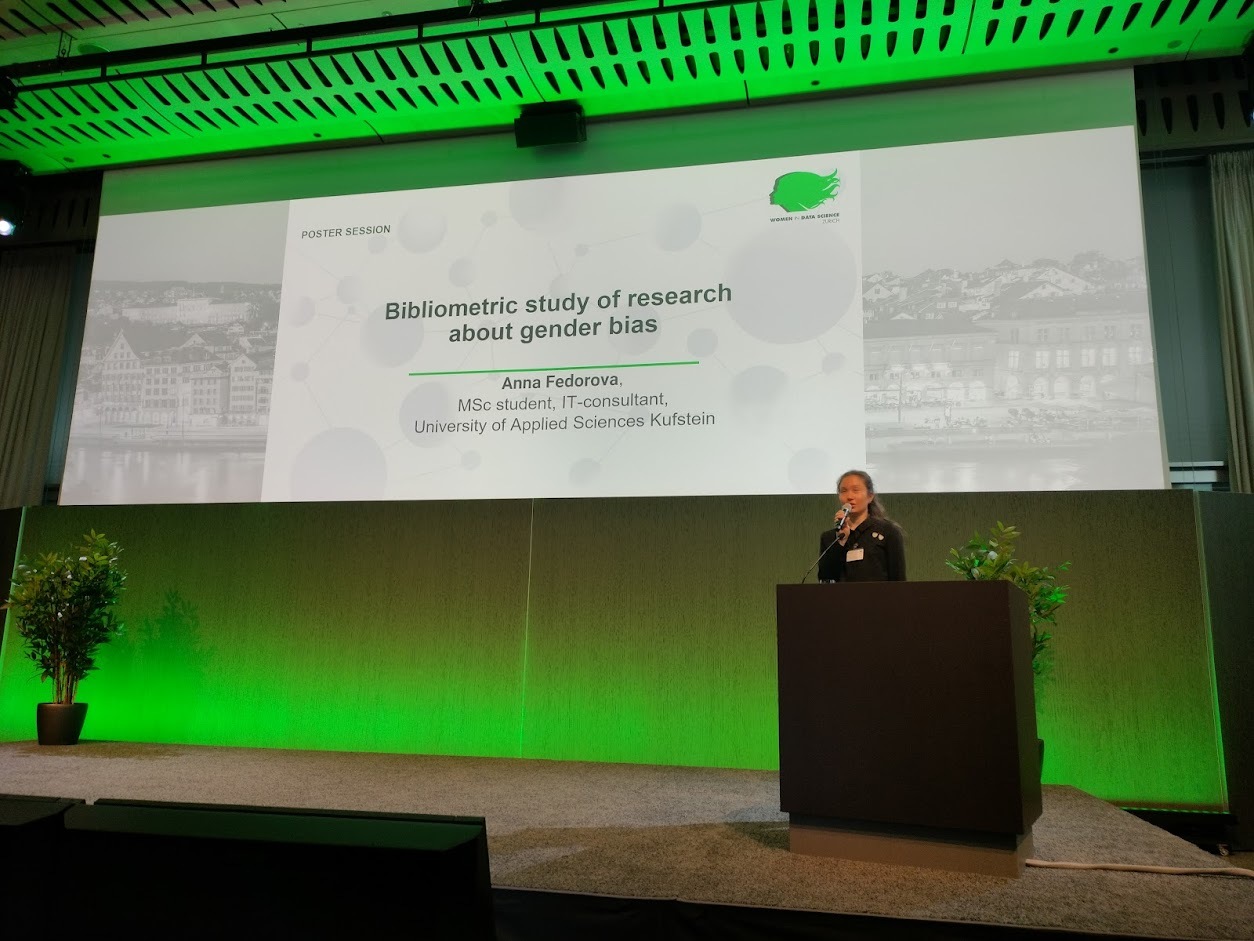
WIDS Villach 2023
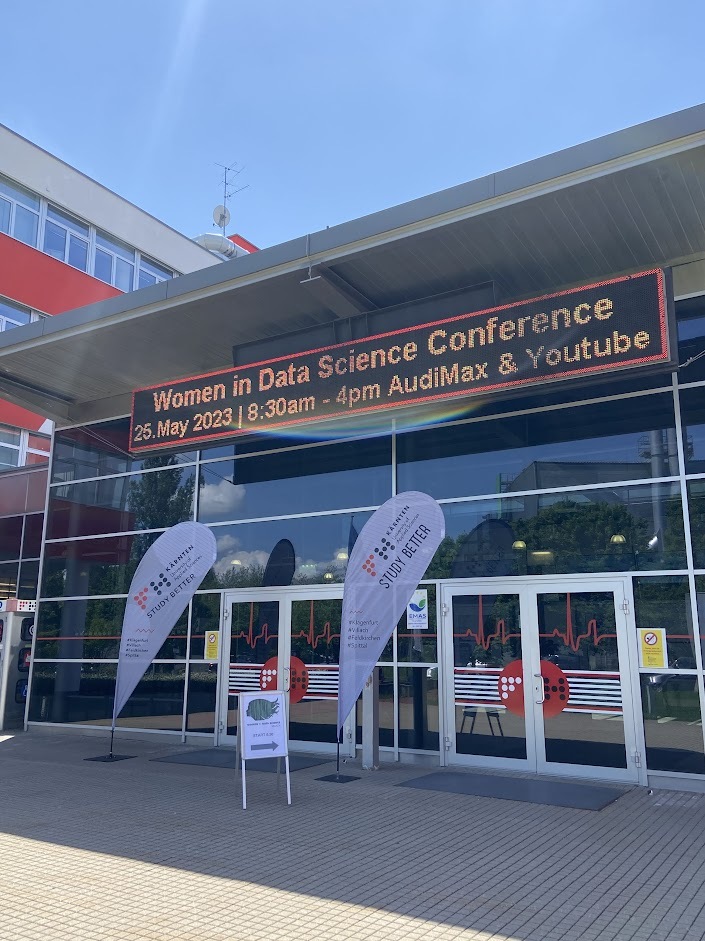
Villach hosts WIDS conference for the second time this year and it was my first time there. The participation is free, and it is notable, that many students from the University of Applied Sciences in Villach as well as the one in Klagenfurt use this chance to broaden their horizons and networks.
The program was concentrating on three main topics and the talks in each of the sessions showed, how various applications of data science technics are:
1. The impact of Data Science on customer data: Multiple use cases were presented here. The first covered data science for hospitality to reduce waste and to make it possible for hotels to plan more services and goods relying on the data about their guests. Another use case focused on energy consumption contribution of Austrian customers and challenges, that arose due to the nature and sources of data. The final use case was customer lifetime value estimation in the realm of e-commerce. Some very interesting observations were discussed concerning the difference between working with pre-cleaned toy sets and the struggle to re-enact the same algorithms with real-world datasets. This was very interesting for me, as these are the issues we also face when starting to work with real customer data.
2. Data Science & Gaming: This talk presented some examples of how data science can be used as a tool to create infrastructure around a rather unusual product – a computer game – to analyse the customer data and its data flows.
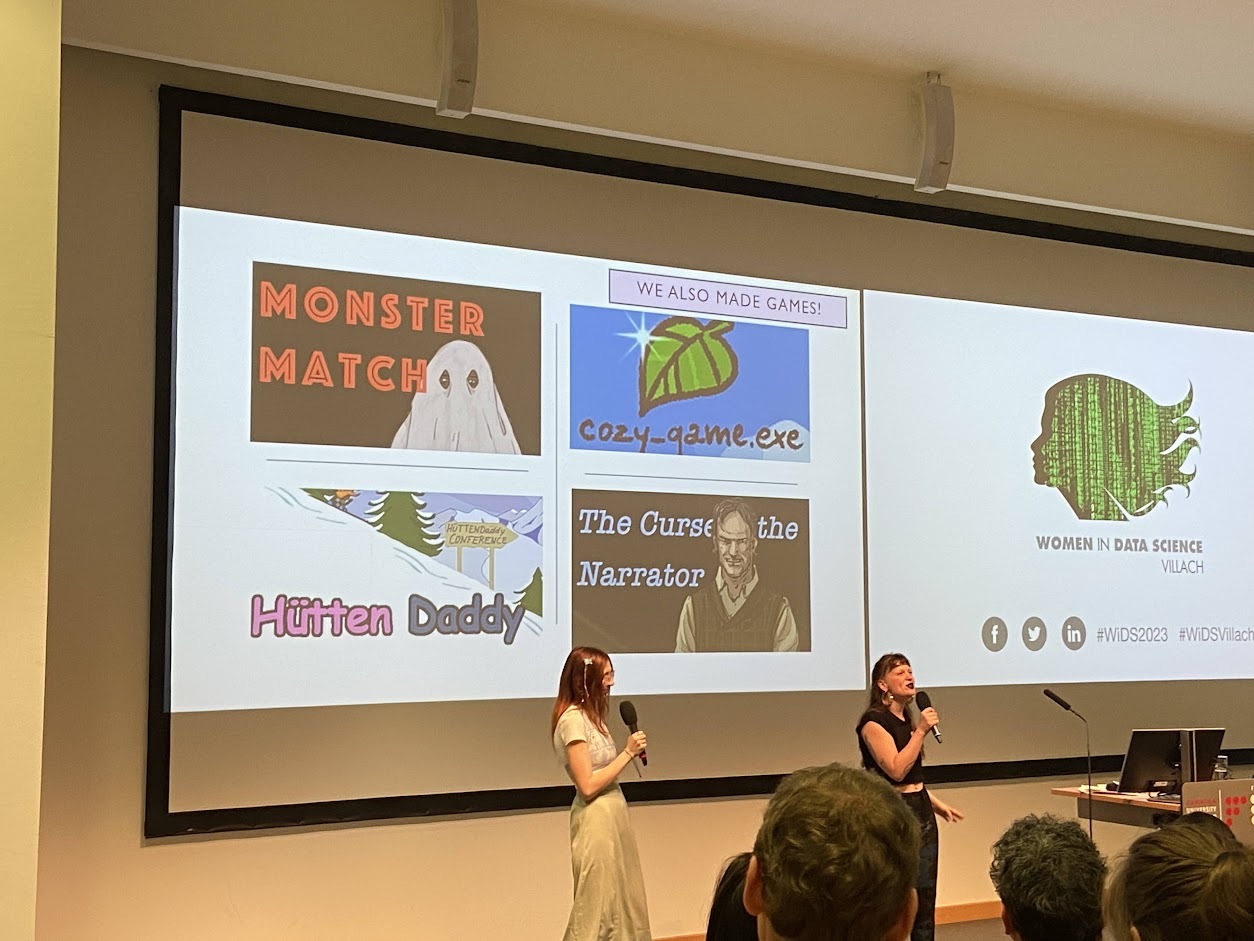
3. How to become a Data Scientist? – This session was a logical ending to previous ones because none of the speakers started their academic training as a “data scientist”, starting from different backgrounds, from hospitality and sociology to system and software engineering. A panel discussion concluded the session, in which data scientists from academia and industry shared their insights about the transition to data science from different other branches and their recommendations for those planning this change. They also stressed the importance of interdisciplinary experience in this field, as in many cases data science is a tool, which can be applied to reach specific goals, but the knowledge of a specific domain is invaluable to apply this tool correctly and efficiently.
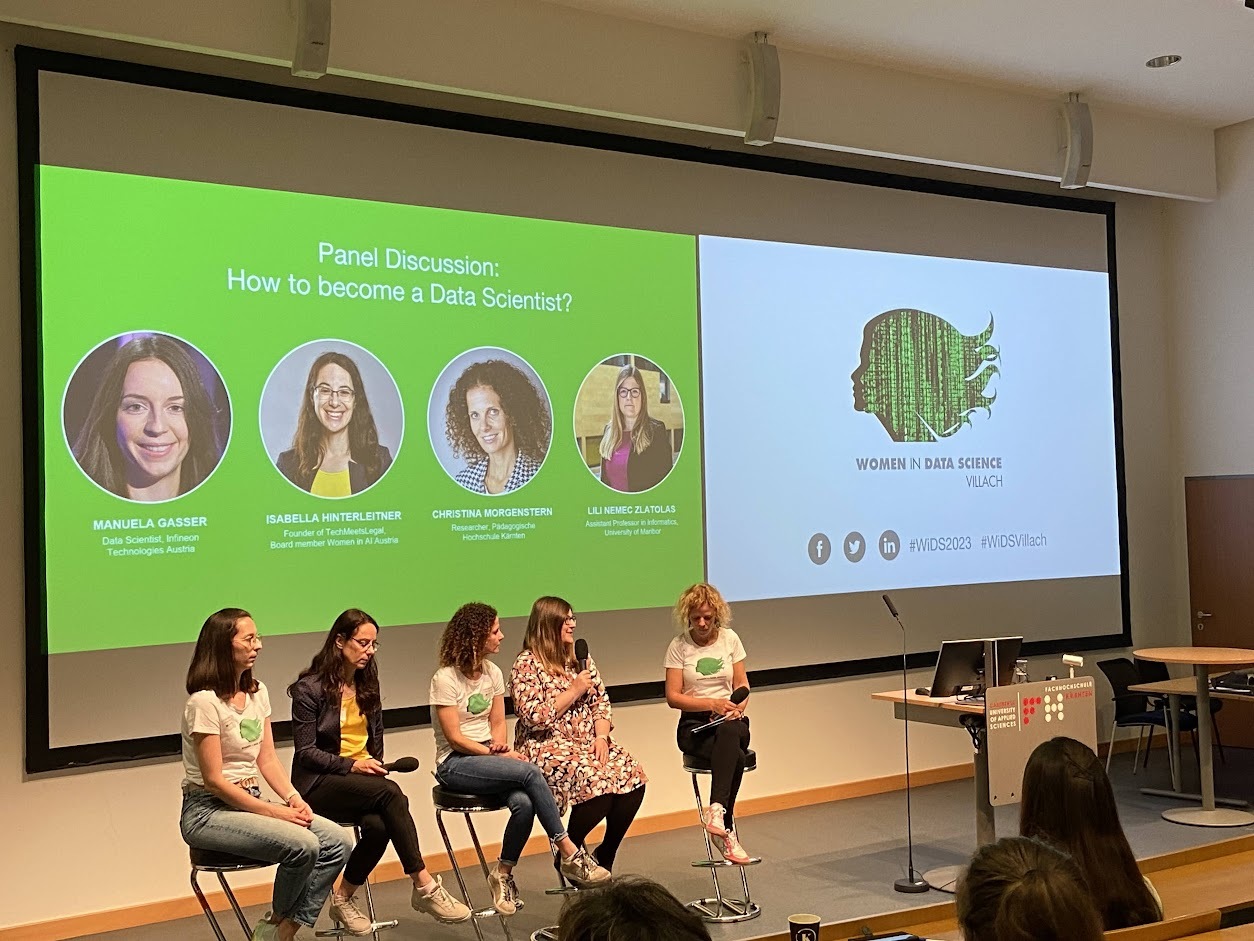
Conclusion
Although these two conferences are running under the same umbrella of the worldwide network Women in Data Science, I found them to be quite different. Both were immensely interesting and provided me with a lot of key points to think – and google – about. And the chance to interact and exchange with other participants was probably the most valuable result I received.
